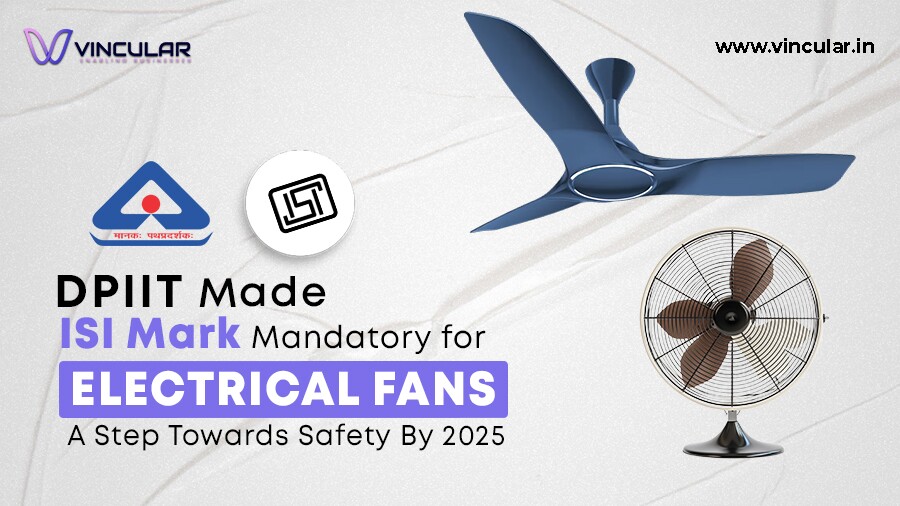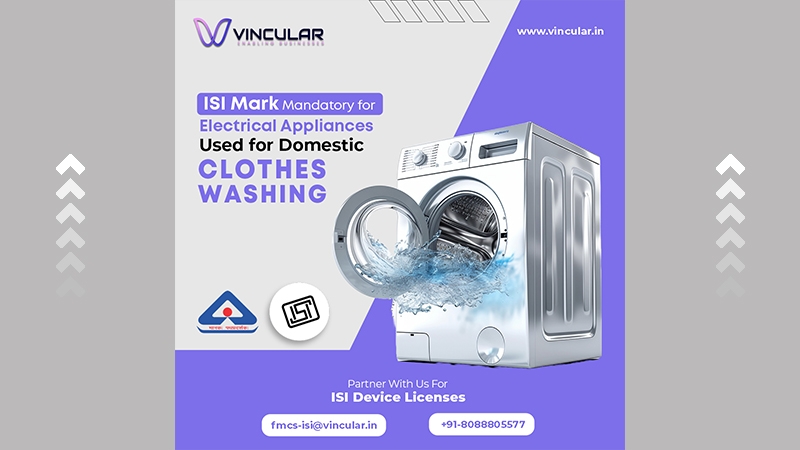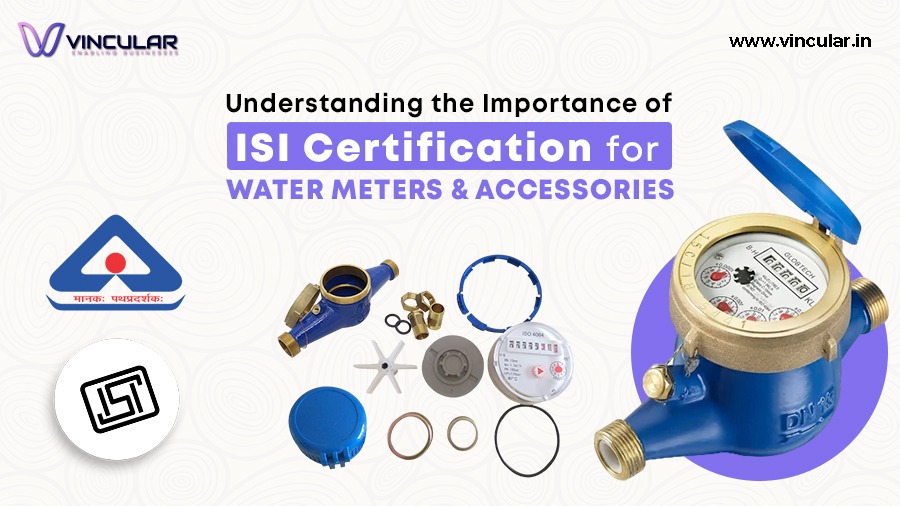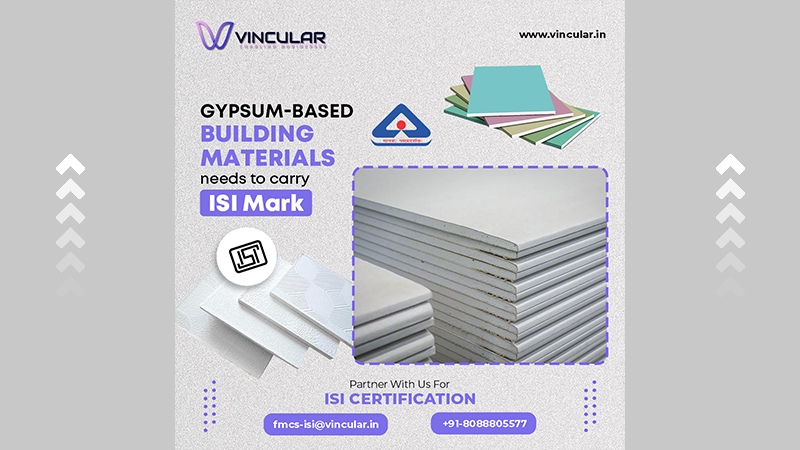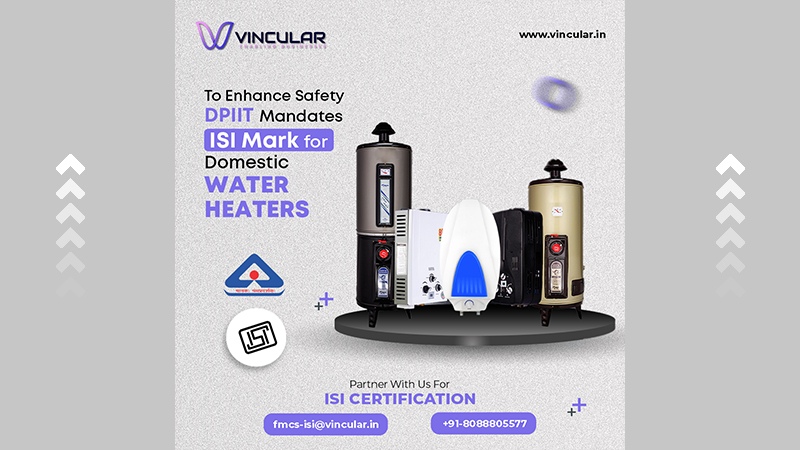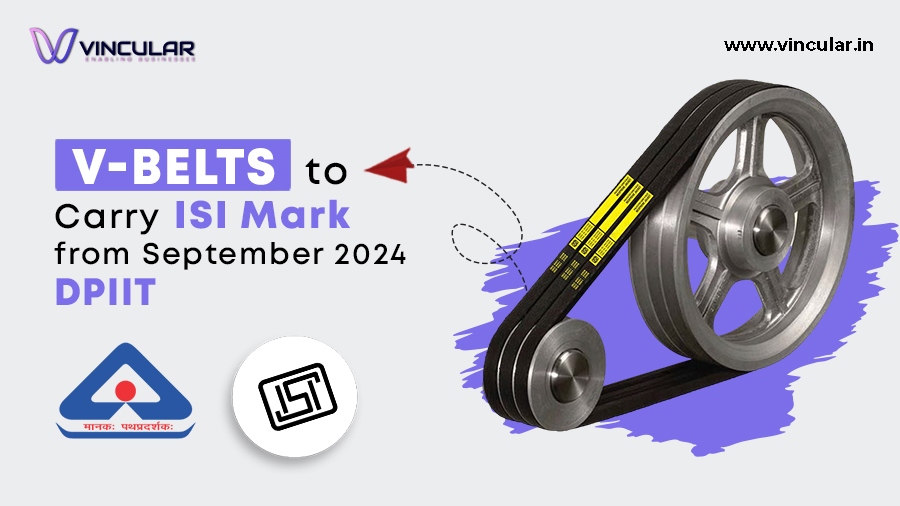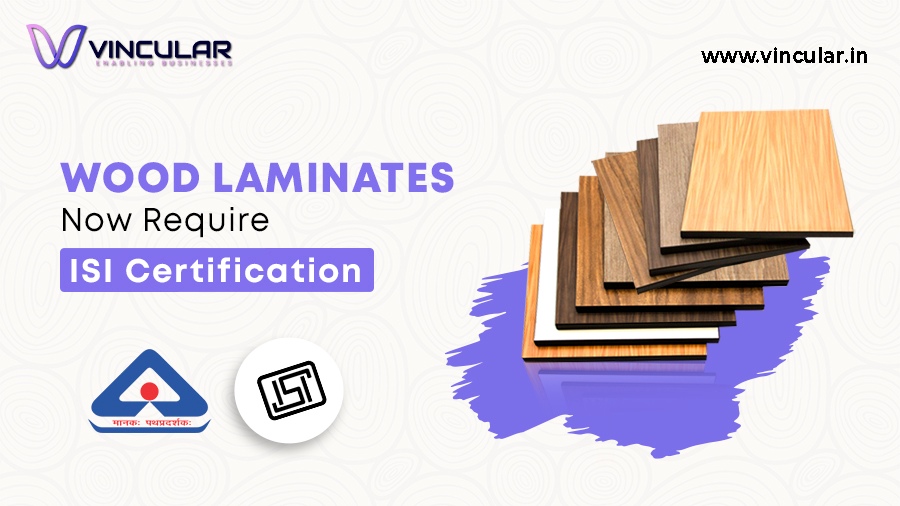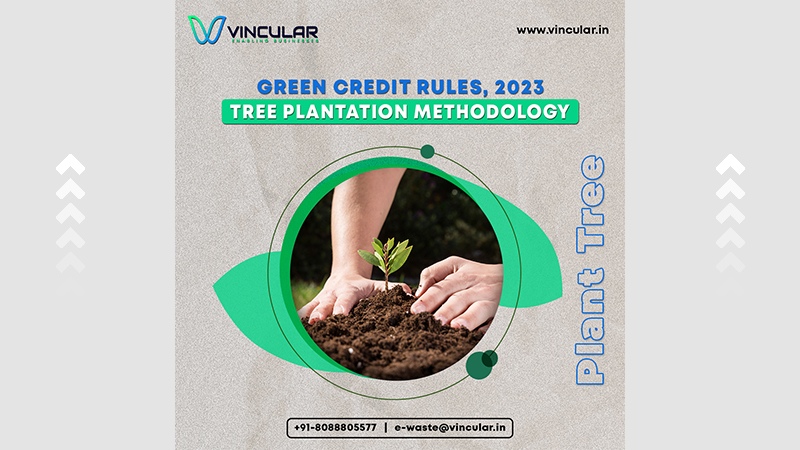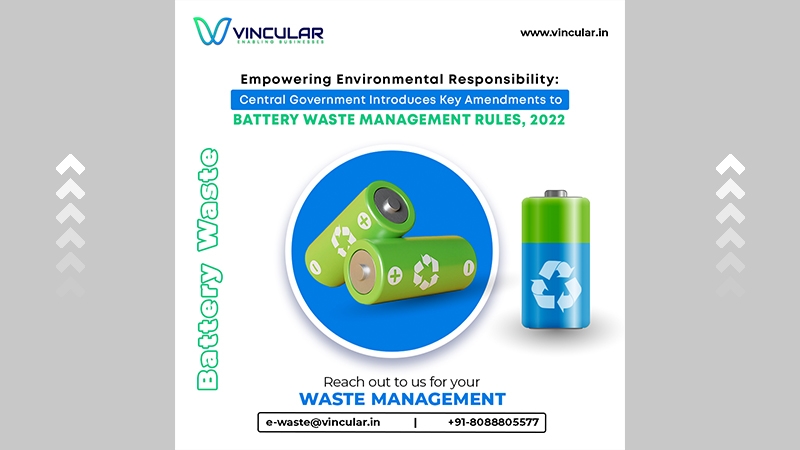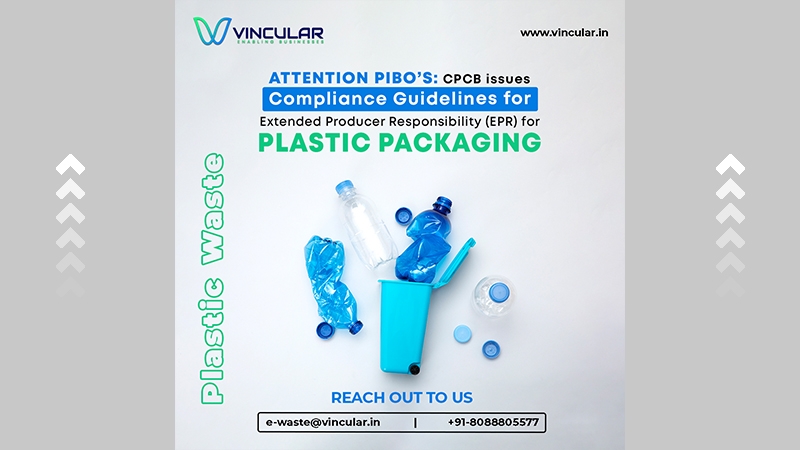Welcome to REGULATORY COMPLIANCE BULLETIN (Newsletter – March 2024), your essential monthly resource for staying up-to-date with the ever-changing world of regulatory compliance.
Our newsletter is tailored for various industries, offering clear and concise insights into the latest updates, trends, and amendments crucial for maintaining compliance and staying ahead of the competition.
Our goal is not only to help you meet current compliance standards but also to empower you with the knowledge needed to anticipate future regulatory changes.
Whether you’re a seasoned compliance professional or new to the field, our newsletters are your trusted companion for staying informed, proactive, and prepared in the complex world of regulatory compliance.
So, let’s begin…
ISI
DPIIT Mandates ISI Mark for Commercial Electrical Appliances
On March 5, 2024, the Department for Promotion of Industry and Internal Trade (DPIIT) introduced a Quality Control Order (QCO) mandating that Electrical appliances for commercial dispensing and vending must bear an ISI Mark.
This directive will become effective six months after its publication in the Official Gazette, which is on September 5, 2024.
Micro and Small Enterprises (MSEs) are given different timelines for compliance:
- Small Enterprises have until December 2024.
- Micro Enterprises have until March 2025.
This regulation represents a significant stride by the government to ensure that these industries adhere to stringent standards, safeguarding consumer well-being and enhancing industry competitiveness.
For further information refer to the official notification here.
DPIIT announced the ISI Mark Requirement for Skin and Hair Appliances
On March 5, 2024, the Department for Promotion of Industry and Internal Trade (DPIIT) announced a new rule to ensure the quality of Electrical Appliances used for Skin or Haircare. According to this rule, these appliances must now carry an ISI Mark.
This change will officially take effect 12 months after it is published in the Official Gazette, which means it will be enforced from March 5, 2025.
To give smaller businesses time to adapt, Micro and Small Enterprises (MSEs) have different deadlines:
- Small Enterprises have until June 2025.
- Micro Enterprises have until September 2025.
This rule is designed to raise standards in these industries, ensuring consumer safety and fostering healthy competition.
For further information refer to the official notification here.
DPIIT issued an order mandating an ISI Mark for Electrical Fans
On March 5, 2024, the Department for Promotion of Industry and Internal Trade (DPIIT) issued a new Quality Control Order (QCO) stating that Electrical fans must now carry an ISI Mark for quality assurance.
This rule will officially take effect six months after its publication in the Official Gazette, which is on September 5, 2024.
To accommodate smaller businesses, Micro and Small Enterprises (MSEs) have different deadlines:
- Small Enterprises have until December 2024.
- Micro Enterprises have until March 2025.
This regulation is a significant step by the government to ensure that these industries meet strict standards, ensuring consumer safety and boosting industry competitiveness.
For more details, please refer to the official notification provided here.
ISI Mark Mandatory for Electrical Appliances used for Domestic Clothes Washing
On March 5, 2024, the Department for Promotion of Industry and Internal Trade (DPIIT) introduced a new regulation to enhance the quality of electrical appliances used for domestic clothes washing. As per this rule, these appliances are now required to carry an ISI Mark.
This regulation will officially come into effect six months after its publication in the Official Gazette, starting from September 5, 2024.
To provide smaller businesses with adequate time to adjust, Micro and Small Enterprises (MSEs) have been granted different deadlines:
- Small Enterprises: The deadline is extended until December 2024.
- Micro Enterprises: The deadline is extended until March 2025.
The objective of this rule is to elevate standards within these industries, ensuring consumer safety while promoting healthy competition.
For further information refer to the official notification here.
Electrical Kitchen Appliances Must Carry ISI Mark: DPIIT
On March 5, 2024, the Department for Promotion of Industry and Internal Trade (DPIIT) introduced a new rule stating that Electrical Kitchen Appliances must now bear an ISI Mark.
This rule specifies that the following appliances must meet certain safety standards outlined in Indian Standards
- Safety of household and similar electrical appliances – particular requirements – toasters, grills, roasters and similar appliances: 302 (Part 2/Sec 9): 2009
- Safety of household and similar electrical appliances – particular requirements – range hoods: 302 (Part 2/Sec 31): 2009
The directive will officially take effect six months after its publication in the Official Gazette, which is on September 5, 2024.
Micro and Small Enterprises (MSEs) have been given different deadlines to comply:
- Small Enterprises have until December 2024.
- Micro Enterprises have until March 2025.
This regulation is a significant move by the government to ensure that these industries adhere to strict standards, ultimately ensuring consumer safety and enhancing competitiveness within the industry.
For further information, please refer to the official notification from here.
Govt. Mandates ISI Mark for Air Coolers and Air Filters
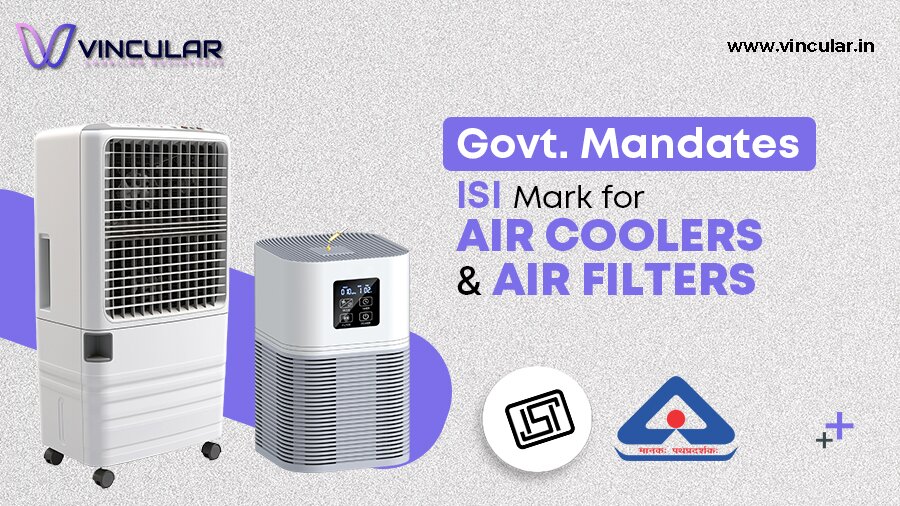
The Department for Promotion of Industry and Internal Trade (DPIIT) on March 5, 2024, announced a new rule mandating Air Coolers and Air Filters to carry an ISI Mark.
This rule will start being enforced six months after it’s officially announced in the Official Gazette, which will be on September 5, 2024.
To give smaller businesses time to adapt, Micro and Small Enterprises (MSEs) have different deadlines:
- Small businesses have until December 2024.
- Micro businesses have until March 2025.
NOTE: This order does not apply to goods or articles manufactured domestically by an enterprise, registered under the ”Udyam portal’ of the Ministry of Micro, Small and Medium Enterprises whose investment in machinery is less than twenty-five lakh rupees, and whose turnover is under two crore rupees, for the previous financial year as certified by a Chartered Accountant.
This regulation is a significant step by the government to ensure that these industries meet strict standards, ensuring consumer safety and boosting industry competitiveness.
Please refer to the official notification provided here.
DPIIT Mandates ISI Mark for Water Meters and Accessories
The Department for Promotion of Industry and Internal Trade (DPIIT) on 5th March introduced a new quality control order aimed at enhancing the quality of water meters and related accessories.
Under this order, specific products need to adhere to Indian Standards and display an ISI Mark. These products include:
- Water meters (bulk type): IS 2373:1981
- Water meters (domestic type): IS 779:1994
- Ferrules for water services: IS 2692:1989
This directive will officially come into effect six months after its publication in the Official Gazette, which is scheduled for September 5, 2024.
To support Micro and Small Enterprises (MSEs) in adjusting to these standards, the implementation dates are as follows:
- Small Enterprises: June 25, 2024
- Micro Enterprises: September 25, 2024
This regulation is a significant step by the government to ensure that these industries meet strict standards, ensuring consumer safety and boosting industry competitiveness.
Please refer to the official notification provided here.
Gypsum-based Building Materials need to carry ISI Mark
In a groundbreaking move, the Department for Promotion of Industry and Internal Trade (DPIIT) introduced a Quality Control Order (QCO) on March 5, 2024, mandating the ISI Mark for Gypsum-based Building Materials.
Under this order, the ISI Mark is compulsory for the following types of Gypsum-based Building Materials:
- Gypsum Plaster Boards
- Glass Fibre Reinforced Gypsum Panels
- Coated/ Laminated Gypsum Plaster Boards
- Reinforced Gypsum Plaster Boards, Ceiling Tiles
This directive will officially take effect six months after its publication in the Official Gazette, scheduled for September 5, 2024.
To accommodate micro and small enterprises, the enforcement dates are as follows:
- Small businesses: December 2024.
- Micro businesses: March 2025.
This move ensures the quality and safety of Gypsum-based Building Materials, reflecting DPIIT’s commitment to enhancing standards in the construction industry.
Refer to the notification from here.
To Enhance Safety DPIIT Mandates ISI Mark for Domestic Water Heaters
In a move to enhance safety standards, the Department for Promotion of Industry and Internal Trade (DPIIT) has issued a crucial order outlining the mandatory requirement of the ISI Mark for various electrical appliances used in domestic water heating which are as follows:
- Stationary Storage Type Electric Water Heaters
- Electric Instantaneous Water Heaters
- Electric Immersion Water Heaters
- Stationary storage type electric water heaters
- Mini Domestic Water Heaters for Use with Piped Natural Gas (PNG)
This order takes effect from 05 September 2024, precisely six months from the date of its publication in the Official Gazette.
The rollout dates for Small and Micro Enterprises (SMEs) are as follows:
- Small Enterprises: Effective from 05 December 2024
- Micro Enterprises: Effective from 05 March 2025
For more information, you can access the official notification from here.
DPIIT Issues Quality Control Order Mandating ISI Mark for V-Belts
In a proactive move to enhance consumer safety and product quality, the Department for Promotion of Industry and Internal Trade (DPIIT) issued a QCO on 6 March 2024, making ISI Mark mandatory for various types of V-belts which are as follows:
- Endless V-Belts for Industrial Purposes – General Purpose
- Endless V-Belts for Industrial Purposes – fire-resistant and antistatic
- Transmission Devices – Endless narrow V-belts for industrial use
This order takes effect from September 2024, precisely six months from the date of its publication in the Official Gazette.
The rollout dates for Small and Micro Enterprises (SMEs) are as follows:
- Small Enterprises: Effective from December 2024
- Micro Enterprises: Effective from March 2025
Access the official notification from here.
Govt. Mandates ISI Mark for Asbestos or Fibre Cement
In a groundbreaking move, the Department for Promotion of Industry and Internal Trade (DPIIT) introduced a Quality Control Order (QCO) on March 5, 2024, mandating the ISI Mark for Asbestos or Fibre Cement.
Under this order, the ISI Mark is compulsory for the following types of Asbestos or Fibre Cement:
- Fibre Cement Flat Sheets
- Asbestos Cement Flat Sheets
- Asbestos Cement Building Boards
- Silica-Asbestos-Cement Flat Sheets
- Asbestos Cement Pressure Pipes and Joints
- Shallow Corrugated Asbestos Cement Sheets
- Asbestos Cement Pressure Pipes (Light Duty)
- Asbestos Cement Cable Conduits and Troughs
- Corrugated and Semi – Corrugated Asbestos Cement Sheets
- Asbestos – Cement Pipes and Fittings for Sewerage and Drainage
- Fibre Reinforced Cement Products – Long Corrugated or Asymmetrical Section Sheets and Fittings for Roofing and Cladding
This directive will officially take effect six months after its publication in the Official Gazette, scheduled for September 5, 2024.
To accommodate micro and small enterprises, the enforcement dates are as follows:
- Small businesses: December 2024.
- Micro businesses: March 2025.
For more details, please refer to the official notification provided here.
DPIIT Announces Amendment for ISI Mark Requirement on Leather and Mixed Material Footwear
The Department for Promotion of Industry and Internal Trade (DPIIT) recently announced a new implementation date for footwear made from leather and other materials after several extensions.
From August 1, 2024, footwear manufactured from leather and other materials must carry the ISI Mark.
However, there are exceptions to this rule:
- Goods or articles intended for export are not subject to this requirement.
- Micro and small manufacturing units, as defined in the Micro, Small and Medium Enterprises Development Act, 2006, are exempt from this requirement.
- Manufacturers who declare their old stock of footwear products without the ISI Mark, manufactured or imported before the start of this order, can continue to sell or display such stock until June 30, 2025.
(This is only applicable to the manufacturers certified by the Bureau or the Manufacturer who has applied for the certification.)
The Bureau of Indian Standards will oversee the certification and enforcement of the following types of footwear:
- Leather safety boots and shoes
- Canvas shoes with rubber soles
- Canvas boots with rubber soles
- Safety boots for miners
- Sports Footwear
- Anti-riot shoes
- Leather safety footwear with direct-moulded rubber soles
- Leather safety and protective footwear with direct-moulded polymeric soles
- High-ankle tactical boots with PU-rubber soles
- Shoes for services and general purposes
For more details, you can refer to the official notification from the link.
DPIIT Issues Revised Regulations for Footwear Made from Rubber or Polymeric Materials
The Department for Promotion of Industry and Internal Trade (DPIIT) has issued a revised order regarding the implementation date for footwear made from rubber or polymeric materials and their components.
Now from August 1, 2024, footwear made from rubber or polymeric materials and their components must carry the ISI Mark.
However, there are some exceptions to this order:
- Goods meant for export are not affected by these regulations.
- Small-scale manufacturing units are also exempt from this order.
- Imports of specific items used solely for manufacturing footwear for export are permitted under certain conditions.
Conditions for importers:
- Importers must provide a self-declaration, certified by the Council for Leather Exports, stating that the imported soles are intended for export use only.
- The declaration should include details of the import consignment and affirm that the imported items will not be sold domestically.
- Importers must also provide certification from the Council for Leather Exports confirming their status as a registered manufacturer-exporter.
- All necessary documents, including the self-declaration and certification, must be uploaded to the Indian Customs Electronic Data Interchange portal for customs clearance.
Additionally, manufacturers who declare their old stock of footwear products without the ISI Mark before the commencement of this order are allowed to sell or display such stock until June 30th, 2025.
To know the list of the products that are included in this order, refer to the official notification from here.
Important Update from DPIIT: Revisions to Implementation Dates for Plywood and Wooden Flush Door Shutters
The Department for Promotion of Industry and Internal Trade (DPIIT) has announced a modification in the implementation date for the Plywood and Wooden Flush Door Shutters Quality Control Order.
This order covers various types of plywood including those for general purposes, structural, marine, and fire-retardant applications.
Initially, this order was to be enforced from 29th February 2024, the government has now rescheduled the implementation to 28th February 2025.
Furthermore, the implementation dates for Micro and Small Enterprises (MSEs) have also been revised and are as follows:
✅ Small Enterprises: 28th May 2025
✅ Micro Enterprises: 28th August 2025
These adjustments are aimed at ensuring a smooth transition and providing ample time for manufacturers to align with the new regulatory framework.
You access the official notification from here.
Important Announcement: DPIIT Revised Implementation Dates for Cookware, Utensils, and Cans Quality Control Order
The Department for Promotion of Industry and Internal Trade (DPIIT) has made a significant announcement regarding the implementation date for the Cookware, Utensils, and Cans for Foods and Beverages Quality Control Order.
Initially scheduled for enforcement from 9th February 2024, the government has rescheduled the implementation date. From 1st September 2024, it will be mandatory for Cookware, Utensils, and Cans for foods and beverages to carry the ISI mark.
Additionally, the implementation dates for Micro and Small Enterprises (MSEs) have been updated as follows:
- Small Enterprises: 1st December 2024
- Micro Enterprises: 1st March 2025
These adjustments have been made to facilitate a seamless transition and provide ample time for manufacturers to align with the updated regulatory framework.
For more detailed information, please access the official notification here.
DPIIT issues Amendment in Resin Treated Compressed Wood Laminates Quality Control Order
On February 29th, the Department for Promotion of Industry and Internal Trade (DPIIT) made an important announcement regarding the quality control of Resin Treated Compressed Wood Laminates used for electrical, chemical, and general purposes.
From January 14, 2025, the below specified resin-treated compressed wood laminate products must meet certain Indian Standards to ensure their quality and safety according to the amendment,
- For electrical purposes: IS 3513 (Part 1):1989
- For chemical purposes: IS 3513 (Part 2):1989
- For general purposes: IS 3513 (Part 3):1989
Additionally, there are revised deadlines for Micro and Small Enterprises (MSEs) to comply with these standards:
- Small Enterprises have until April 14, 2025.
- Micro Enterprises have until July 14, 2025.
This change is aimed at enhancing the reliability of Resin Treated Compressed Wood Laminates across various industries, ensuring they meet quality and safety standards.
You can access the official notification from here.
Waste Management
Green Credit Rules, 2023 – Tree Plantation Methodology
Green Credit is an opportunity for businesses to access credit facilities while encouraging green initiatives like investing in renewable energy, adopting energy-efficient technologies, and so on to reduce carbon footprint and contribute to a greener future.
Under the Green Credit Rules 2023, the Central Government has introduced a methodology for calculating green credits in tree plantations. Here’s a summary of the key points:
Identification of Land: Forest Departments will identify degraded land parcels (such as open forests, wastelands, and catchment areas) for tree plantation to increase green cover. The identified land must be free from encumbrances and be at least five hectares in size
Application Process: Individuals or entities wishing to plant trees for Green Credit can apply to the Administrator.
Assignment and Proposal: Administrators assign suitable land for tree plantations and invite applicants to submit proposals.
Demand Note: An official request including tree plantation costs and administrative expenses will be issued to the applicant.
Payment: Applicants must pay the specified amount to the Administrator within the given period.
Plantation Execution: The Forest Department will execute the plantation within two years of receiving payment.
Completion Report: After planting, the Forest Department submits a completion report and issues a certificate to the applicant.
Green Credit Issuance: The Administrator evaluates the plantation activity and issues Green Credits based on the number of trees planted, at a rate of one credit per tree, with a minimum density requirement.
Note- Green Credit is calculated as one credit per tree, with a minimum density requirement of 1100 trees per hectare based on local conditions.
Use of Green Credits: The credits can be used for compensatory afforestation compliance, as well as corporate social responsibility reporting under environmental, social, and governance indicators.
These rules aim to enhance the green cover, this methodology not only supports environmental sustainability but also offers a path for corporate responsibility and compliance.
Let’s contribute to a greener, more sustainable future and continue to grow our green footprint.
Empowering Environmental Responsibility: Central Government Introduces Key Amendments to Battery Waste Management Rules, 2022
The Central Government has taken proactive steps to enhance the management of battery waste by introducing significant amendments to the Battery Waste (Management) Rules, 2022.
Here are the key highlights of the latest amendments:
- The Central Pollution Control Board (CPCB) will determine the highest and lowest prices for EPR certificates. These prices will range from 100% to 30% of the Environmental Compensation that obligated companies must pay for not fulfilling their EPR obligations.
- CPCB will set the exchange price of EPR certificates between registered entities through a designated portal. This price will fall within the range of the highest and lowest prices fixed by the CPCB.
- Companies can carry forward up to 60% of the remaining quantity of batteries placed in the market during a compliance cycle to the next cycle.
These changes aim to streamline the management of battery waste and ensure better compliance with environmental responsibilities.
Refer to the official notification from here.
Attention PIBOs: CPCB issues Compliance Guidelines for Extended Producer Responsibility (EPR) for Plastic Packaging
The Ministry of Environment, Forest, and Climate Change (MoEF&CC) introduced amendments to the Plastic Waste Management Rules, 2016, on March 14th, 2024, aiming to strengthen plastic waste management practices.
Here are the key changes:
- Changes have been made to the definitions of biodegradable plastics, importer, manufacturer, producer, and seller.
- Manufacturers of commodities made from compostable or biodegradable plastics must report the quantity introduced in the market and pre-consumer waste generated to the CPCB.
- Local bodies and panchayats at the district level have been assigned significant responsibilities under the amended rules.
- Recycled plastic packaging or commodities must bear a label indicating the percentage of recycled plastic used, following specified rules.
- Plastic packaging or commodities made from compostable plastics must bear a label stating suitability for industrial composting, conforming to the Indian Standard: IS/ISO 17088:2021.
- Changes have been made regarding the submission dates for annual reports, as mentioned in the notification.
- EPR categories previously included rigid plastic, flexible plastic, multilayer plastic packaging, and compostable plastics. A new category, Category 5, has been added for biodegradable plastics in plastic packaging.
These amendments aim to streamline plastic waste management practices and ensure environmental sustainability.
For more information, refer to the notification here.
BEE
BEE Rolls Out Star Labelling Initiative for Packaged Boilers and Commercial Beverage Coolers (Visi Cooler)
To promote energy efficiency and conservation efforts nationwide, on March 12, 2024, the Bureau of Energy Efficiency (BEE) during its 22nd Foundation Day celebration, unveiled two new product categories named Packaged Boiler and Commercial Beverage Coolers (Visi Cooler) under the voluntary list of Standard and Labeling scheme.
Here are the key points:
Packaged Boilers:
The program encompasses Packaged Boilers manufactured, imported, or assembled for commercial sale in India and utilizes solid fuel, biomass, oil and natural gas as fuel across all capacities under the Indian Boiler Regulation (IBR).
They may include features like air preheater, economizer, or waste heat recovery system.
Commercial Beverage Coolers (Visi Cooler)
The program encompasses vertical floor or table mounted, single and multidoor type Commercial Beverage Cooler (commercially known as Visi Cooler), with overall heights ranging from 0.5 m to 2.2 m. Notably, this excludes coolers with pre-installed energy management devices (EMD).
- The label period for the Energy Star label will be from March 1, 2024, to December 31, 2026.
- The standard and labelling portal for company and model registrations will be accessible starting March 13, 2024.
You can find more information, including the schedule and sample label layout, on the S&L portal by clicking below:
India Launches Efficiency Scheme for Grid-connected Solar Inverters
The Bureau of Energy Efficiency (BEE) has initiated a voluntary Star Labelling program for Grid-connected Solar Inverters.
This is a big step forward for India’s Standards and Labeling (S&L) program. Through this initiative, there is a projection of achieving energy savings of 21.1 billion kWh and a significant reduction of 15.1 million tonnes in carbon dioxide emissions between FY 2024-25 and FY 2033-34.
Beyond its direct impact on energy conservation, this endeavour serves as a key enabler for the Prime Minister’s Rooftop Solar Programme.
Aligned to deploy rooftop solar systems in 10 million households nationwide, this initiative promises to further accelerate the adoption of solar energy across diverse segments of the population.
Here are the key points:
- The label period for the Energy Star label will be from 15th March 2024 to 31st December 2025.
- This energy labelling program encompasses both single-phase and three-phase grid-connected solar inverters without storage up to and including 100 kW rated output power being manufactured, imported and sold in India.
- This program does not cover the dynamic MPPT efficiency.
- Only BIS-certified solar inverters that comply with IS 16221-2:2015 are eligible to take part in the BEE’s Standard and Labelling program.
- The standard and labelling portal for company and model registrations will be accessible soon.
You can find more information, including the schedule and sample label layout, on the S&L portal by clicking here
FSSAI
FSSAI Urges Strict Vigilance Against Adulterated Foods During Festival Season
With the festival season around the corner, there’s a surge in demand for food items like samvat rice, buckwheat flour (kuttu atta), chestnut flour (singhara atta), fruits, veggies, and more. However, some unscrupulous Food Business Operators (FBOs) compromise quality for profit, risking consumer health.
Especially concerning is the issue of contaminated Kuttu Atta, linked to past food poisoning incidents during festivals like Navratri. This could be due to selling old stock or improper storage leading to fungal infestation.
To address these issues proactively and ensure consumer safety, the Food Safety and Standards Authority of India (FSSAI) urges all Commissioners of Food Safety of State / Union Territories (UTs) and Regional Directors of FSSAI to conduct inspections and sampling drives to exercise strict food safety vigilance on the manufacturing and sale of food items meant to be consumed during the festive season, particularly Kuttu Atta, Singhada Atta, Bhagar/Samak ke Chawal (Barnyard millet), in their respective jurisdictions.
Food sellers are also reminded to follow good hygiene practices when handling and storing these items.
Refer to the official notification from here.
FSSAI Extended Deadline for Integrated Veterinary Health Certificate (VHC) for Imported Food Products
The Food Safety and Standards Authority of India (FSSAI) previously required health certificates for imported food items like milk and milk products, pork and pork products, and fish and fish products. The implementation date for this requirement was extended until 24th February 2023.
After consulting with stakeholders, an integrated veterinary health certificate was introduced by the Department of Animal Husbandry and Dairying (DAHD) and FSSAI on 31st March 2023
To support trade and accommodate feedback from trading partners, DAHD extended the transition period for implementing the integrated veterinary health certificate until 30th June 2024.
This means that imported milk and milk products with a bill of lading or date of VHC issuance from exporting countries after 30th June 2024 will only be cleared post-import if they have the integrated veterinary health certificate.
Stay informed and ensure compliance with these regulations for imported food items with Vincular!
Access the official notification from here.
Ensuring Safe Festive Celebrations: FSSAI urges strict Vigilance on Milk and Milk Products
As the festive season approaches, the demand for milk and milk products such as Khoya and sweets rises. Unfortunately, this also increases the temptation for some to adulterate these products to meet the growing demand.
To tackle this issue, FSSAI recommends proactive measures. This includes conducting special surveillance and enforcement drives by Food Safety Officers in areas where such malpractices are known to occur. These drives should focus on hotspots of adulteration and ensure the safety and quality of these products.
FSSAI urges strict vigilance on the manufacturing and sale of milk and milk products during this festive season. This involves frequent enforcement drives and utilizing tools like Food Safety on Wheels in key markets.
These efforts aim to ensure that these products meet food safety standards and maintain consumer confidence across the country.
Let’s celebrate the festivities with safe and authentic milk products!
Access the official notification from here.
TEC
Extension: Security Testing Extended by Three Months!
The effective date for security testing under NCCS’s COMSEC scheme has been extended for 3 months. The effective date now stands on 1st July 2024 for the notified product categories, WiFi CPE and IP Routers.
Although the mandatory date has been extended, NCCS will be accepting voluntary applications for Voluntary Security Certification (VSC) from manufacturers and applicants.
Official Notification from the regulator can be accessed here.
Voice Compliance
TRAI releases Recommendations on ‘Introduction of Calling Name Presentation (CNAP) Service in Indian Telecommunication Network’
To combat the persistent issue of spam calls, the Telecom Regulatory Authority of India (TRAI) has recommended DoT for the implementation of the Calling Name Presentation (CNAP) Supplementary Service across telecommunications networks.
In its recommendation paper, TRAI has stated that 140 number series provided to telemarketers making calls to subscribers should also be displaying the name of the calling entity.
With the introduction of the CNAP feature, the users will be able to view the names of anonymous callers.
This function will enable the users to identify incoming calls and distinguish legitimate calls from spam or unknown callers. This move, if approved, would require telecom service providers to furnish caller name display to subscribers upon their request.
Stay tuned for further updates if the DoT will be framing guidelines to curb the issue of spam calls. The recommendations can be accessed from here.
The requirement of a Wireless Operating License (WOL) was removed from UL and UL (VNO) guidelines by DoT
Recently, the Department of Telecommunications (DoT) has issued a notification for removal of the requirement to obtain a Wireless Operating License (WOL) for VSAT, CUG, CMRTS licensees, Unified license (UL) and Unified License Virtual Network Operator (UL-VNO) with authorizations of NLD, ILD, PMRTS, GMPCS, Internet Service and Machine to Machine (M2M) service.
As per DoT, this initiative aims to bring more simplification to the current regulatory framework reduce the compliance burden on the Service Providers and will promote ease of doing business.
Earlier, the license holders with the above-mentioned authorizations were required to obtain a separate license named Wireless Operating License (WOL) which was issued by the Wireless Planning and Coordination (WPC) wing, DoT.
However, with the termination of WOL, DoT has clarified that the licensees would continue to obtain frequency assignments from the WPC wing.
BIS-CRS (STQC)
MEITY Notified CCTV/ Video Surveillance System for Security requirement under Public Procurement Order 2017
As per a Notification dated 6th March 2024, MEITY notifies that preference is to be given to local manufacturers under Public Procurement Order 2017. MEITY shall be the nodal Ministry to monitor the implementation of the notification. The following video surveillance products have been notified under this order-
- CCTV Camera (Analog/IP/Analog Speed Dome/IP Speed Dome)
- Digital Video Recorder/Network Video Recorder
As per Notification, the mechanism has been given for each type of product for the calculation of local content in the product.
| BOM | Value addition (Domestic BOM) |
| Main PCB
(I/O Board, IR Board, Control Board) |
PCBA of parts and components on bare PCB must be done in India using the SMT process, Total value of the Main PCB shall not exceed 10% of the total BOM |
| Bare PCB | The total value of Bare PCB shall not exceed 5% of the total BOM |
| Optics | The total value of Optics shall not exceed 10% of the total BOM |
| In House R&D | 2023-24 & 2024-25: 7%
2025-26: 10 % 2026-27: 12% |
| In House Design (IPR) | 2023-24 & 2024-25: 7%
2025-26: 10 % 2026-27: 12% |
| Housing | The total value of Housing shall not exceed 15% of the total BOM |
| Cable/Connector | The total value of Cable/connectors shall not exceed 5% of the total BOM |
| Final Assembly | The total value of the final assemble shall not exceed 10% of the total BOM |
A similar table has been given for each product variant for the calculation of local content in the Notification.
Procedure to Calculate Domestic BOM
It will be calculated based on two things:
- Bill of material sourced from domestic manufacturers: Dom-BOM
- Total Bill of Material: Total BOM
Percentage of Dom-BOM= (Dom-BOM/Total BOM) *100
For more details regarding Dom-BOM & Total BOM refer to 10.1 & 10.2 of the given notification.
Brief about Security Requirement
- The surveillance device CCTV Camera/Video Surveillance System (VSS) should comply with the ER (Essential requirements prescribed by MEITY. For details of ER refer to “Annex A” of Notification.
- The Security testing report is to be issued by STQC or MEITY-notified labs etc.
- The validity of the test report is Three (3 Years)
- The date of Enforcement is after 3 months of Notification (04th June 2024)
- The Notification remains valid till any revised notification is issued.
Essential Requirements for CCTV
Key areas for security testing of CCTV systems include below:
- Physical Security: using Temper resistant enclosure and locking mechanism
- Access control: Role-based access control (RBAC) and regularly review and update access permission.
- Network Security: Encryption of Data Transmission
- Software Security: Regular updates, disable unused features, strong password policies.
- Penetration Testing: Employ penetration testing to access the cyberattacks and address vulnerability
For details on each refer to the table of Annex A
Verification of Domestic Value Addition
- Local suppliers shall provide self-certification that the product meets the minimum local content requirements.
- In case procurement value >5Cr then the local supplier shall provide a certificate from CA giving a percentage of local content.
- In case of any complaint from the procuring agency regarding Local content percentage, the complaint is referred to STQC and the same shall be disposed of within 4 weeks.
- The complaint Fee will be INR 2 Lakh or 1% of the total value of the procurement (whichever is higher) to be paid by DD in favour of STQC, if the complaint is found incorrect the fee shall be forfeited otherwise it will be refunded.
For official notification click here
Miscellaneous
Govt. Introduces Amendments in Vehicle Scrapping Facility for Greener and More Transparent Operations
Amendments to the Registration and Functions of Vehicle Scrapping Facility Rules in India have been introduced with several important changes. Here are the Key Highlights of the Amendments:
- No Incentives for Government or Impounded Vehicles: Government-owned or impounded vehicles handed over by enforcement agencies will no longer receive incentives on the Certificate of Deposit (CD) issued for them.
- Extended Certificate Validity: The certificate of deposit (CD) will now be valid for three years instead of two years from the date of issuance.
- Enhanced Audits: Registered scrappers must conduct regular audits of their facilities by agencies specified under the Central Motor Vehicles Rules, 1989, covering regulatory compliance and mass flow statements verification.
- Environmental Compliance: To ensure compliance with environmental regulations, scrapping facilities must now obtain Consent to Establish (CTE) from the Pollution Control Board (PCB) before starting operations.
- Extended CD Validity: The validity period for CDs has been extended to three years, providing more flexibility to vehicle owners.
- Operational Consent: Before commencing operations, scrapping facilities must obtain Consent to Operate (CTO) from the PCB, with applications required at least 60 days in advance.
- Digital Documentation: Physical receipts for CD issuance are no longer required. Applicants will now receive digital receipts.
- Non-tradable CDs for Government Vehicles: CDs issued for government-owned or impounded vehicles will not be electronically tradable, preventing misuse.
Moreover, these amendments aim to:
- Promote the establishment of environmentally friendly scrapping facilities.
- Ensure responsible vehicle disposal practices.
- Provide greater flexibility and transparency for vehicle owners.
- Strengthen the vehicle scrapping ecosystem in India.
For more details, you can access the official notification from here.
India Introduces Electric Vehicle (EV) Manufacturing Scheme to Accelerate Growth and Global Competitiveness
India’s automotive sector is rapidly growing, with significant potential for electric vehicles (EVs) to lead the market. The government has introduced various initiatives like FAME and PLI schemes to promote EV adoption.
Objective:
To position India as a global hub for manufacturing electric passenger cars, fostering employment, and advancing the “Make in India” initiative.
Key Highlights:
- Minimum investment of Rs. 4,150 crores for setting up e4W manufacturing facilities.
- Facilities must achieve a Domestic Value Addition (DVA) of 25% within 3 years and 50% within 5 years.
- Reduced customs duty of 15% for importing e4Ws, linked to investment commitments.
- Maximum duty foregone capped at Rs. 6,484 crore
- A Bank guarantee is required to ensure investment and DVA targets are met.
Eligibility:
- Applicant companies or their group companies must meet revenue and investment criteria.
- Approved applicants must make new investments.
- Minimum domestic investment commitment of Rs. 4,150 crores within 3 years.
Application Process:
- Applications are accepted online via a portal managed by the Project Management Agency (PMA).
- Submission of audited financial statements and supporting documents is required.
- A non-refundable application fee is applicable.
Approval and Monitoring:
- Scheme approval is processed within 120 days of application.
- The Scheme Sanctioning Committee (SSC) oversees implementation and addresses challenges.
- Regular reviews ensure scheme progress and performance.
Residual Provisions:
- Selected applicants are prohibited from diluting shareholding during scheme tenure.
- Transactions with related parties are subject to regulations, with integrity compliance mandatory.
Conclusion:
The scheme endeavours to propel India’s EV manufacturing sector, attract investments, and ensure adherence to targets through robust oversight.
For more details, you can access the official notification from here.
Govt. Introduced a New Initiative to Boost Domestic Electrolyser Manufacturing for Green Hydrogen
As part of “Strategic Interventions for Green Hydrogen Transition (SIGHT) Programme Component I: Incentive Scheme for Electrolyser Manufacturing Tranche II,” the government aims to:
- Boost indigenous electrolyser manufacturing capacity.
- Lower the cost of hydrogen production.
- Ensure competitive product performance and quality.
- Increase domestic value addition.
- Support established and promising technologies.
Implementation Guideline:
- The scheme will run from FY 2025-26 to FY 2029-30 with a total budget of Rs. 4440 crores.
- Detailed guidelines for implementation are provided in the Annex.
- Funding for the scheme will be sourced from the Hydrogen Mission Head budget.
- Solar Energy Corporation of India (SECI) will oversee implementation.
For more details, you can access the official notification from here.
Stay Updated, Stay Compliant – Subscribe to our Newsletter Now!
Whether it’s important compliance notifications or changes in policies and regulations, we’ve got it covered.
Get your monthly dose of vital updates by subscribing to our LinkedIn Newsletter or WhatsApp Channel. You can also, watch our Publication Space to stay updated.




